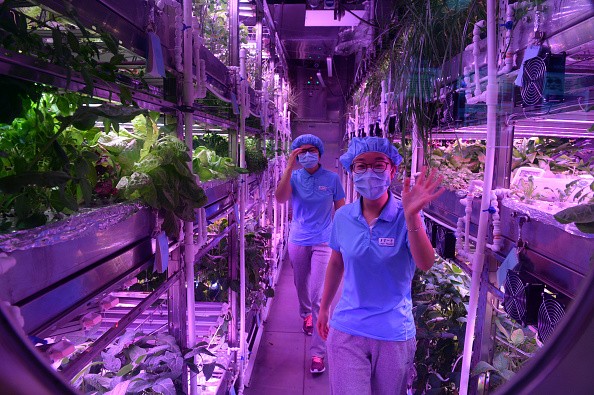China has started training eight volunteers to become the country's first lunar explorers by sending them to live in "Yuegong-1," a simulated space cabin, the Xinhua News Agency reported.
The training is expected to enhance the scientists' knowledge and understanding of the conditions for humans to stay on the moon for a medium or long period as a potential destination for lunar tourism.
According to the report, all the volunteers are civilians and they are postgraduate students from Beihang University.
They are divided into two groups. The first group, composed of two men and two women, will start living in the cabin on Wednesday, May 17, and will stay there for 60 days.
They will be replaced by the second group, also made up of two men and two women, who will live in the cabin for 200 days.
The first group will return later to spend the remaining 105 days.
Dubbed "Yuegong-365," the experiment is the university's second attempt to test how the Bio-regenerative Life Support System (BLSS) will work in an environment similar to the moon. The first trial for the BLSS was conducted for 105 days in 2014.
Animals, plants and microorganisms co-exist in the BLSS, where food and water are recycled in the system to create an Earth-like environment.
"The BLSS is absolutely crucial to probes to the moon and to Mars," Liu Zhiheng of the Chinese Academy of Sciences said. "The latest test is vital to the future of China's moon and Mars missions and must be relied upon to guarantee the safety and health of our astronauts."
According to Liu Hong, chief designer of "Yuegong-1," the new program was designed to test the BLSS on astronauts as they take turns to live in the cabin and how they will respond to situations such as blackouts.
The "Yuegong-1" is made up of a living space and two plant cabins or "greenhouses." The major cabin measures 42 square meters, while each plant cabin is 3.5 meters high and 50 to 60 square meters in area.
The major cabin has four bed cubicles, with a common room, a washroom, a waste-treatment room and an animal-raising room.
The system is sufficient to meet the basic needs of the four "astronauts" as they conduct their research, the report said.



























